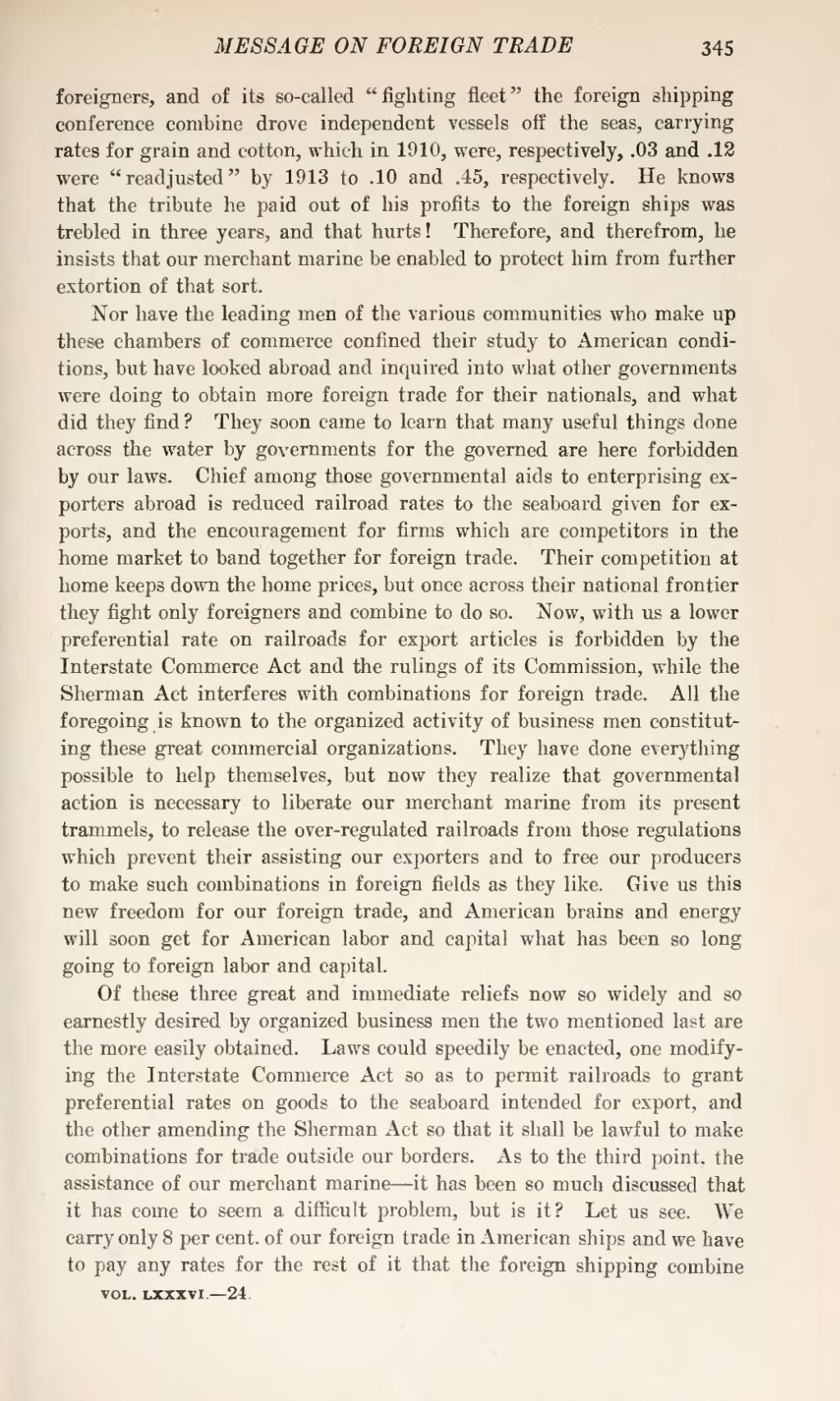foreigners, and of its so-called "fighting fleet" the foreign shipping conference combine drove independent vessels off the seas, carrying rates for grain and cotton, which in 1910, were, respectively, .03 and .12 were "readjusted" by 1913 to .10 and .45, respectively. He knows that the tribute he paid out of his profits to the foreign ships was trebled in three years, and that hurts! Therefore, and therefrom, he insists that our merchant marine be enabled to protect him from further extortion of that sort.
Nor have the leading men of the various communities who make up these chambers of commerce confined their study to American conditions, but have looked abroad and inquired into what other governments were doing to obtain more foreign trade for their nationals, and what did they find? They soon came to learn that many useful things done across the water by governments for the governed are here forbidden by our laws. Chief among those governmental aids to enterprising exporters abroad is reduced railroad rates to the seaboard given for exports, and the encouragement for firms which are competitors in the home market to band together for foreign trade. Their competition at home keeps down the home prices, but once across their national frontier they fight only foreigners and combine to do so. Now, with us a lower preferential rate on railroads for export articles is forbidden by the Interstate Commerce Act and the rulings of its Commission, while the Sherman Act interferes with combinations for foreign trade. All the foregoing is known to the organized activity of business men constituting these great commercial organizations. They have done everything possible to help themselves, but now they realize that governmental action is necessary to liberate our merchant marine from its present trammels, to release the over-regulated railroads from those regulations which prevent their assisting our exporters and to free our producers to make such combinations in foreign fields as they like. Give us this new freedom for our foreign trade, and American brains and energy will soon get for American labor and capital what has been so long going to foreign labor and capital.
Of these three great and immediate reliefs now so widely and so earnestly desired by organized business men the two mentioned last are the more easily obtained. Laws could speedily be enacted, one modifying the Interstate Commerce Act so as to permit railroads to grant preferential rates on goods to the seaboard intended for export, and the other amending the Sherman Act so that it shall be lawful to make combinations for trade outside our borders. As to the third point, the assistance of our merchant marine—it has been so much discussed that it has come to seem a difficult problem, but is it? Let us see. We carry only 8 per cent. of our foreign trade in American ships and we have to pay any rates for the rest of it that the foreign shipping combine
